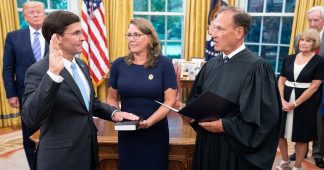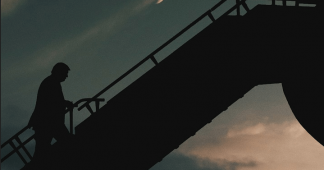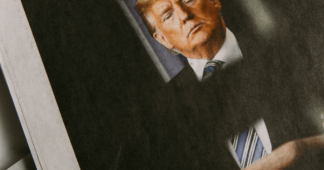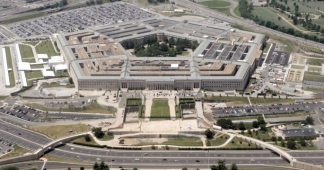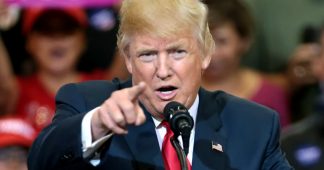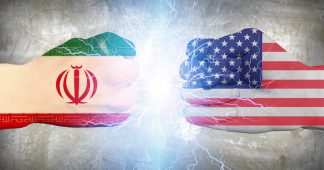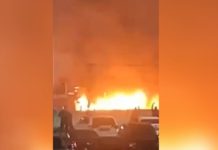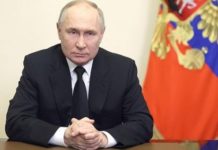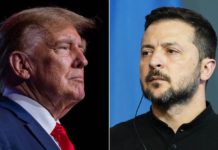By Jeremy Kuzmarov
According to a profile in Eric Blehm’s 2010 book, The Only Thing Worth Dying For: How Eleven Green Berets Fought For a New Afghanistan, President Trump’s new Acting Defense Secretary Christopher Miller picked out passages from British pro-imperialist writer Rudyard Kipling to motivate troops under his command. In this way he masterminded the unconventional warfare campaign in Afghanistan following the 9/11 attacks before going on to head Special Forces operations in Central Iraq during George W. Bush’s troop surge in 2006-2007.
In an interview last month, Miller told Seth G. Jones of the conservative think tank Center for Strategic and International Studies (CSIS) that his specialty was in unconventional warfare or “hearts and minds work,” and added that he also participated in direct action—where you’re “kicking down doors, you’re taking people out of buildings, or killing them.”
Miller’s appointment to the Pentagon’s top post comes at a time when the victorious Biden campaign is beginning its transition to power.
Monday, after Trump’s election defeat, he fired previous Defense Secretary Mark Esper which triggered a wave of high-level departures in the Pentagon and set off alarm that Trump was trying to install loyalists to carry out his wishes during an already tense transition period.
One of the new appointees, Brigadier General Anthony Tata, who replaces James Andersen as the Pentagon’s Acting Under-Secretary of Defense for Policy, was formerly a Fox News regular who called former President Barack Obama a “terrorist leader” and Islam “the most oppressive violent religion I know of.”
Fears continue to swirl about what Tata, Miller and other newly installed leaders might do as Trump fights the results of last week’s election including concerns that he might use troops to solve political problems or enact psychological warfare operations of which Miller is an expert.
Born in Platteville, Wisconsin in 1965, Miller served as an Army War College fellow to the CIA and was part of a special army unit that tracked and hunted Osama bin Laden prior to the 9/11 terrorist attacks.
In a 2013 article in The Small Wars Journal, he advocated for shifting the U.S. military focus to the Far-East, writing that “It is American dominance in the world that allows Americans to enjoy what it is we love in our society” and that “Americans will not happily accept a decline in our standard of living so that others elsewhere can have more.”
Miller went to state that: “this no time for America to become complacent. America worked and fought hard to obtain its place in the world and keeping that place will require just as much work and fighting.”
From 2014 to 2016, Miller’s bio lists him as being employed by “various defense contractors” and serving as an “intelligence and sensitive special operations adviser” who provided “clandestine special operations and intelligence expertise directly to the Under Secretary of Defense for Intelligence.”
Until May 2015, the Under Secretary of Defense for Intelligence was Michael Vickers, a former CIA paramilitary officer who helped coordinate anti-Soviet operations in Afghanistan during the 1980s—he was featured as a chess playing CIA strategist in the Hollywood blockbuster film Charlie Wilson’s War—and a subversion campaign against the socialist Sandinista government in Nicaragua. As Assistant Secretary of Defense for Special Operations and Low Intensity Conflict from 2007-2011, Vickers championed the use of drones, and helped run the operation to hunt and kill Osama bin laden.
At this time, any dirty tricks that Trump and Miller may be up to is a matter of speculation—as with much of Miller’s CV. (See below)
A possible clue though can be seen in Miller’s role in shepherding the completion of a White House counterterrorism strategy after his appointment in August as director of the National Counterterrorism Center that expanded the scope of threats facing the United States to include “Iran, Hezbollah and domestic terrorism.”
In May, following the protests over the police killing of George Floyd in Minneapolis, President Trump had designated Anti-fascist action or Antifa, a protest movement opposed to white supremacy and fascism, as a domestic terrorist organization.
While it is unlikely that Trump would start a war with Iran or Hezbollah, he could try and foment civil unrest here in the U.S. in an attempt to save his presidency, and invoke counter-terrorism pretexts, including the Insurrection Act, for cracking down on Antifa and other enemies—in a manner that Miller and his colleagues perfected in Afghanistan and Iraq.
This is a potential danger to which the public should be attuned.
* Jeremy Kuzmarov is Managing editor of CovertAction Magazine and author of four books on U.S. foreign policy including Obama’s Unending Wars (Clarity Press, 2019).
Published atcovertactionmagazine.com
